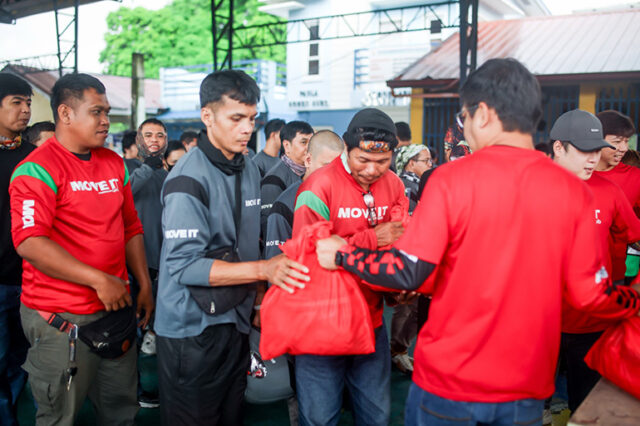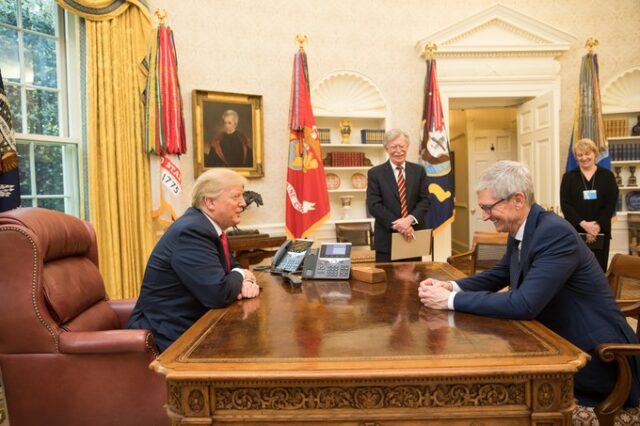AGRICULTURAL OUTPUT expanded by an annual 5.7% in the second quarter — the fastest pace in eight years — as better weather conditions enabled high-value crops such as rice and corn to post double-digit growth, the Philippine Statistics Authority (PSA) said on Wednesday.
Data from the PSA showed the value of production in agriculture and fisheries at constant 2018 prices increased by 5.7% to P437.53 billion in the April-to-June period, faster than the 2% growth in the first quarter.
This was a reversal of the 3.2% contraction in the second quarter of 2024 when the agriculture sector was affected by drought and dry spells caused by the El Niño weather phenomenon.
 This was also the fastest growth in agricultural output since 6.4% in the second quarter of 2017.
This was also the fastest growth in agricultural output since 6.4% in the second quarter of 2017.
“Crops and poultry recorded expansions in the value of production, while livestock and fisheries registered declines during the period,” the PSA said.
At current prices, the value of production in agriculture and fisheries rose to P606.794 billion.
For the first half, the value of farm output expanded by 3.8% to P875.56 billion, a reversal of the 1.5% decline a year earlier.
“We know that we still have to do a lot more to realize the vision of President Ferdinand R. Marcos, Jr. for a modern agricultural sector, where farmers and fisherfolk reap the full benefits of their hard work. But this result — and that of the first quarter — are a clear indication that we are on the right track,” Agriculture Secretary Francisco P. Tiu Laurel, Jr. said in a statement.
Agriculture accounts for about a tenth of gross domestic product (GDP) and about a quarter of all jobs. The PSA will release second-quarter GDP data today (Aug. 7).
Crop output, which accounted for 56% of total agricultural production, rose by 11.3% to P244.9 billion in the second quarter. Palay and corn posted double-digit growth of 13.9% and 27.3%, respectively.
“Palay and corn and poultry are expected to rebound because of good weather and high prices,” former Agriculture Undersecretary Fermin D. Adriano said in a Viber message.
Other crops that saw double-digit expansion include sugarcane (341%), onion (77.5%), coffee (14.5%), cabbage (11.7%) and cacao (11.4%).
On the other hand, declines were seen in the value of production of abaca (18.2%), tomato (16%), mongo (13.6%), mango (8.6%), sweet potato (8%), potato (5.5%), banana (2.6%), and pineapple (1.1%).
Raul Q. Montemayor of the Federation of Free Farmers said better performance of the agriculture sector this year was expected since 2024 was an “abnormal year” due to the El Niño weather phenomenon.
For the first half, crop output grew by 5.9% to P494.5 billion, reversing the 4.4% contraction last year.
At the same time, poultry, which made up 17.2% of total farm output, went up by 7% to P75.07 billion in the second quarter. However, this was slower than 9.8% in the first quarter, and 8.7% in the second quarter of 2024.
The value of production for chicken grew by 8.2%, while chicken eggs rose by 4.8%. However, duck production fell by 1.1%, while duck eggs dipped by 0.7%.
For the first six months of the year, poultry production jumped by 8.4% to P150.57 billion. This was an improvement from the 7.3% growth in the same period in 2024.
LIVESTOCK, FISHERIES
Meanwhile, the value of production for livestock declined by 5.9% to P59.6 billion in the April-to-June period, worsening from the 0.3% drop in the same quarter a year ago and the 2.8% decline in the first quarter. Livestock accounted for 13.6% of total agricultural output.
In the second quarter, hog output contracted by 7.5%, while carabao production also fell by 2.9%.
On the other hand, dairy production grew by 9.6%, while cattle and goat rose by 2% and 1.3%, respectively.
For the first six months, the value of livestock production declined by 4.4% to P117.43 billion, worse than the 1.9% drop in the same period a year ago.
On the other hand, the value of fishery output declined by 4.2% to P57.96 billion in the second quarter, reversing the 2.4% growth in the same quarter in 2024 and the 1.5% growth in the first quarter.
Fisheries accounted for 13.2% of total farm output.
Double-digit declines were seen for skipjack (35.6%), bigeye tuna (28.8%), P. Vannamei (22.4%), bluecrab or alimasag (19.6%), Bali sardinella or tamban (15%), mudcrab or alimango (11.9%), fimbriated sardines (11.2%), and roundscad or galunggong (10.4%).
Higher production was seen for grouper or lapu-lapu (25.6%), Indian mackerel or alumahan (20.7%), slipmouth or sapsap (17.9%), yellowfin tuna or tambakol (12.5%), threadfin bream or bisugo (12.1%), and big-eyed scad or matangbaka (9.1%).
Seaweed production grew by 6.1% in the April-to-June period.
In the January-to-June period, the value of fishery output slid by 1.5% to P113.05 billion, reversing the 1.1% growth a year ago.
Analysts said the agricultural and fishery production in the third quarter would likely post a contraction due to the heavy rains that caused floods around the country.
“The prospects for the third quarter are very challenging due to the presence and impact of extreme weather events like typhoons, flooding and soil erosion,” former Agriculture Secretary William Dar said in a Viber message.
The Department of Agriculture (DA) said in late July the agricultural damage due to monsoon rains and recent tropical storms reached P3 billion, affecting 93,070 farmers and fishers.
“The government must continue to make the needed investments to make the agriculture sector more climate resilient,” Mr. Dar said.
Mr. Adriano expects palay production to decline in the third quarter.
“Corn will contract as it is the rainy season, and corn does not like too much water,” he said.
Mr. Adriano said livestock production will continue its “lackadaisical” performance due to the African Swine Fever (ASF).
The Food and Drug Administration has yet to approve a Vietnamese vaccine against ASF for commercial rollout.
“Poultry is expected to grow unless hit by bird flu because of higher demand as it is the cheapest source of protein particularly for the poor,” Mr. Adriano said.
“As for fishery, performance will depend on whether we will be hit by destructive typhoons or not,” he added. — KATA
 Thousands of Grab and MOVE IT partners, along with their families, who were affected by the recent torrential rains and flooding received relief packs containing rice, canned goods, noodles, biscuits, coffee, and essential medicines. The distribution highlights the platforms’ joint commitment — together with their partner communities — to safeguarding the welfare of members of the Grab and MOVE IT communities.
Thousands of Grab and MOVE IT partners, along with their families, who were affected by the recent torrential rains and flooding received relief packs containing rice, canned goods, noodles, biscuits, coffee, and essential medicines. The distribution highlights the platforms’ joint commitment — together with their partner communities — to safeguarding the welfare of members of the Grab and MOVE IT communities.


 Office Segment Strengthens with Higher Occupancy and Strategic Tenant Mix
Office Segment Strengthens with Higher Occupancy and Strategic Tenant Mix Filinvest Land’s real estate sales remained stable at P7.48 billion, backed by project completions, steady collections, and sustained demand for ready-for-occupancy (RFO) units.
Filinvest Land’s real estate sales remained stable at P7.48 billion, backed by project completions, steady collections, and sustained demand for ready-for-occupancy (RFO) units.







